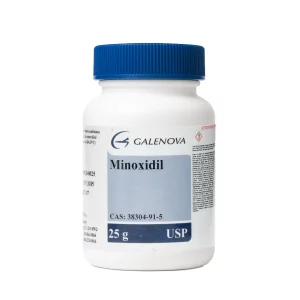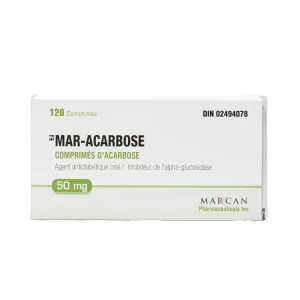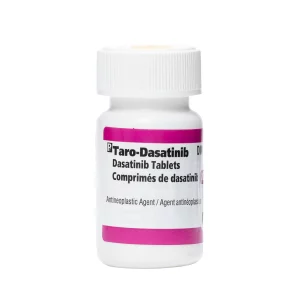Your cart is empty.
Your cart is empty.
Rapamune is the brand name for sirolimus, a drug originally designed to help transplant patients avoid organ rejection. Over time, interest in this medication has grown. People now ask: what is Rapamune used for beyond transplants, and how does it support immune health, aging, or rare diseases?
Today, healthcare providers and wellness-focused individuals are exploring Rapamune for both approved and off-label purposes. While it remains a transplant support medication, new research points to broader benefits.
As you read on, we’ll cover approved medical uses and investigational applications in a simple, easy-to-understand format. We’ll also touch on real-life outcomes, like this Rapamune success story, to show how some users are integrating it into their wellness protocols. Understanding Rapamune dosage strategies is a key part of using it effectively. Whether you’re working with a doctor or researching on your own, dosage guidance, safety, and supervision are critical.
Rapamune was first developed to help prevent rejection after organ transplants. Specifically, it helps kidney transplant recipients maintain their new organs. It works by targeting a biological system called the mTOR pathway. This pathway controls how cells grow and how the immune system responds. By calming the immune system, Rapamune helps the body accept a transplanted kidney.
Doctors combine Rapamune with other medications, such as steroids, to increase success rates. This combination helps prevent both early and long-term rejection. It also allows doctors to use lower doses of each drug. Because it regulates the immune system, researchers became interested in whether Rapamune might help in other health areas too.

Currently, Rapamune is FDA-approved and EMA-approved for the following uses:
In medical settings, Rapamune is usually used with other immunosuppressants. Doctors monitor patients closely through blood tests to make sure the levels stay safe and effective.
People who take Rapamune under medical care usually follow a strict plan. This includes scheduled lab testing, follow-up visits, and dose adjustments as needed. These steps help reduce risk and improve outcomes.

Rapamune off label uses refer to when a care team or licensed professionals prescribe it for reasons not officially approved by the FDA. While this is a common practice in medicine, especially when there’s research or clinical experience to support it, the first step is to talk with that professional. They can help you decide if this is the right call for you and monitor your progress. If the answer is yes, you can order at https://elivena.com/product/rapamune/
Doctors and patients are exploring Rapamune for off-label purposes such as:
Off-label use is never about experimenting alone. A qualified expert should supervise the plan with regular monitoring.
Autoimmune diseases happen when the immune system attacks the body by mistake. Because Rapamune can regulate immune responses, it’s being studied in conditions like:
Researchers believe mTOR inhibition may help restore balance in the immune system. It may reduce flare-ups or lower markers of inflammation. That said, results vary. What helps one person may not help another in the same way.
Doctors prescribing Rapamune for autoimmune conditions often use low doses and schedule regular lab work to track progress.
One of the most talked-about off-label uses today is Rapamune for longevity.
The idea is simple: aging is linked to changes in cellular repair, inflammation, and immune efficiency. The mTOR pathway is a key player in these processes. By adjusting this pathway, Rapamune may support healthspan, not just how long you live, but how well you live.
Animal studies show that mTOR inhibitors like Rapamune can extend lifespan in mice. These results have encouraged human studies focused on things like:
In longevity protocols, Rapamune is usually given in very low doses, often once a week. This spacing reduces immune suppression while still offering cellular benefits. All protocols should be handled by a knowledgeable doctor.
Rapamune is also used in treating rare diseases, especially those involving abnormal cell growth.
Two examples include:
These uses are supported by clinical studies and have become part of specialty care protocols. Because these diseases are rare, treatment is usually managed by experienced specialists.
Despite the range of conditions, Rapamune applications often share similar goals:
Whether the target is organ health, aging, or immune function, the dose and protocol matter. There’s no one-size-fits-all approach. Some people may benefit from weekly dosing, while others might need cyclic use.
The best outcomes come when Rapamune is part of a broader lifestyle plan—one that includes sleep, nutrition, movement, and stress care.
If you’re thinking about Rapamune, start with a doctor. This isn’t a supplement or over-the-counter product. It’s a powerful prescription drug that affects how your cells and immune system behave.
Things to consider:
Also, remember that Rapamune works best when paired with consistent habits, clean nutrition, sleep hygiene, regular movement, and stress reduction. It’s not a quick fix. It’s a support tool in a larger health strategy.
The most common use is to prevent organ rejection after a kidney transplant, often alongside other medications.
The research is encouraging, but advise with a clinician first. He may prescribe it off-label for anti-aging. It may support healthy immune balance and improved metabolic health.
It may be, but it depends on the individual. Always work with a licensed provider for proper monitoring.
Yes. Small studies and case reports show promise in areas like inflammation, autoimmune health, and aging. More research is ongoing.
Sometimes. Some people use it for 6–12 weeks at a time. Others follow a low-dose maintenance plan supervised by a doctor.
Rapamune started as a transplant drug, but today, it’s gaining attention in wellness, longevity, and immune support circles. It’s not a miracle cure, but it has shown steady promise in multiple areas of health. For people who are already healthy but want to stay that way, Rapamune offers a potential edge, especially when used under professional guidance. Its role in immune balance, cellular function, and healthy aging is becoming clearer with each study.
That said, it’s not about taking a pill and hoping for the best. It’s about being proactive. Rapamune works best as part of a full strategy that includes lifestyle, habits, and smart medical support. Whether you’re interested in inflammation control, anti-aging, or better long-term vitality, Rapamune may be worth exploring with your care team. Make decisions from a place of education and intention, not hype.
It’s your body, your health span, your call.
Augustine, J. J., Bodziak, K. A., & Hricik, D. E. (2007). Use of sirolimus in solid organ transplantation. Drugs, 67(3), 369-391.
https://pubmed.ncbi.nlm.nih.gov/17335296/
McCormack, F. X., Inoue, Y., Moss, J., Singer, L. G., Strange, C., Nakata, K., … & Investigators, M. S. (2011). Efficacy and safety of sirolimus in lymphangioleiomyomatosis. New England Journal of Medicine, 364(17), 1595-1606.
https://pubmed.ncbi.nlm.nih.gov/21410393
Teachey, D. T., Obzut, D. A., Cooperman, J., Fang, J., Carroll, M., Choi, J. K., … & Grupp, S. A. (2006). The mTOR inhibitor CCI-779 induces apoptosis and inhibits growth in preclinical models of primary effusion lymphoma. Blood, 107(12), 4819-4828.
https://pmc.ncbi.nlm.nih.gov/articles/PMC1895910


Minoxidil 25mg - Oral vasodilator for blood pressure management. Cardiovascular foundation support, pharmaceutical-grade standards, expert monitoring required.

Acarbose 50mg 120 Tablets - Gentle introduction to glucose control. Three-times daily with meals, precision-formulated tablet strength.

Dasatinib 20mg 60 Tablets - Flexible pediatric-strength dosing option. USP standards compliance, anytime administration, gradual increase capability.
Unlock savings on bundles and elevate your online experience today!